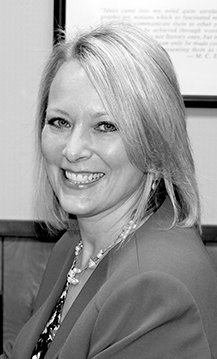Happy Easter — Resurrection Sunday. Today, as Christians celebrate the resurrection of Jesus Christ, church pews will be filled with the faithful and those who show up annually to be counted on a holy holiday.
Certainly, being counted among those commemorating the resurrection of Jesus from the dead is important. The resurrection is described in the New Testament as having occurred on the third day after Jesus’ burial following his crucifixion by the Romans at Calvary. But, what we do after that symbolic third day also matters.
Being counted and demonstrating follow through is important, both spiritually and secularly.
One year from now, Americans will be reminded of the importance of showing up for secular count — the one that accounts for the number of people living in the country. By April 1, 2020, households will receive an invitation to participate in the U.S. Census. You will be asked to participate in one of three ways: online, by phone or by mail.
I was reminded of the importance of participating in this community count by a recent post Pine Bluff Mayor Shirley Washington made on Facebook. The post included a link to a newspaper article focused on what is at stake for communities based on an accurate count of people living therein.
The U.S. has counted its population every 10 years since 1790. Doing so is mandated by the Constitution. The results help determine how more than $675 billion in federal funding is distributed each year to states and communities. These dollars support things like hospitals, fire departments, schools, and roads and highways. If a community does not establish an accurate count, it may not receive critical funding at the appropriate level.
Here are reasons a reliable count matters, according to the Census Bureau website:
The census collects demographic information about households such as age, race, ethnicity, gender, and years spent in a household for every person in the country. This data helps elected officials and policymakers understand the population they serve. Businesses also consider census information when determining where to locate. It speaks to whether there is an available workforce or consumer base.
The U.S. Constitution outlines that the census is used to allocate and apportion seats for the House of Representatives equitably. Geographic shifts in population can result in a reduction or increase in the number of House members for a state. Census info factors into the boundaries for congressional districts, state legislative districts, school districts and voting precincts.
State and federal governments use census data to provide grant funds. Accurate demographics help define needs in the population. If your community is not fully counted, grant eligibility is impacted. Funds will go where there is the greatest documented need for a specific issue.
Having a reliable census count also helps minimize statistical bias in policy research and evaluation. This is an indicator for understanding whether government policies are effective and under what conditions.
Being counted matters. We recognize the importance when contemplating our personal faith and salvation. The key is staying committed to the personal transformation. And in a similar way, our community’s continued transformation relies on our commitment to being counted here, as well.
Shea Wilson is the former managing editor of the El Dorado News-Times. Email her at [email protected]. Follow her on Twitter.com @sheawilson7.
